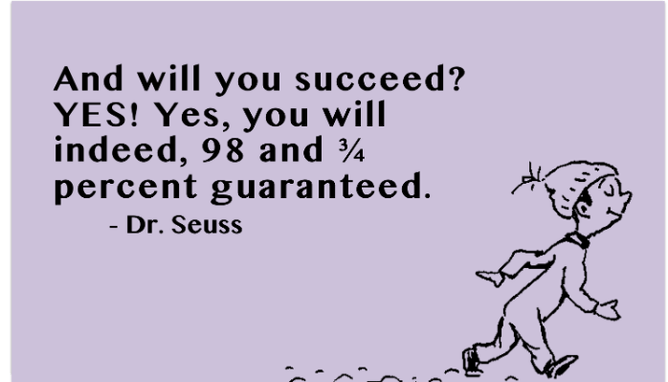At this time of year many of us have thought about or are defining New Year’s resolutions. Setting goals can be an excellent way to keep the mind focused about what is important over the next year. There are many ideas and opinions about goal setting, but how do we keep to our New Year’s resolutions?
It's important to have clear goals. Although just dreaming to achieve a goal isn't enough, nevertheless to achieve a goal without a vision is nearly impossible. If for example, a promotion is your goal, you need to imagine how you want to feel i.e. imagine yourself feeling fantastic, confident, positive and strong, walking into your office and hearing the congratulations from your colleagues, when you arrive at work.
If you want to be successful with your New Year’s resolution, don’t focus on will power; focus on creating the habits that will get the results that you want. Studies show that people who are successful at reaching their goals automate the behaviours that get them to their goals, so they perform them without even thinking about it. That’s what makes them so successful. It isn’t about willpower; it’s about habits and about doing the right things on autopilot.
Habits that we don’t have to make decisions about are an extremely powerful way of creating change. So what creates a habit? Firstly, they are automatic, occurring as part of our daily routine. Secondly, they are triggered by cues in our environment such as place or time. Thirdly, every habit has a reward, when we start to look forward to and really want the reward then the habit becomes automatic
Indeed If there’s something you want to achieve in your life – like New Year resolutions – habits can make following through so much easier. They get us out of the energy sapping business of making decisions and using our self-control.
Each habit has three parts: the cue, the routine itself and the reward. A huge part of understanding how to change or control your habits is identifying the cues and, very importantly, understanding the reward that routine delivers to you.
Breaking a habit is challenging. Once the neural pathways are set with cue, routine and reward, they are there to stay. So rather than thinking in terms of breaking a bad habit, it’s better (and easier) to change the habit into a healthier one. That means finding a new routine that corresponds to the old cue, one that will deliver whatever reward you are getting from it currently. For example, if you usually have a habit of eating biscuits at work in the afternoon to raise your energy levels, keep the routine, but instead of biscuits have some fruit and a handful of nuts instead.
Happy New Year! What routines would you like to create or replace so you can have a happy and successful 2018?
